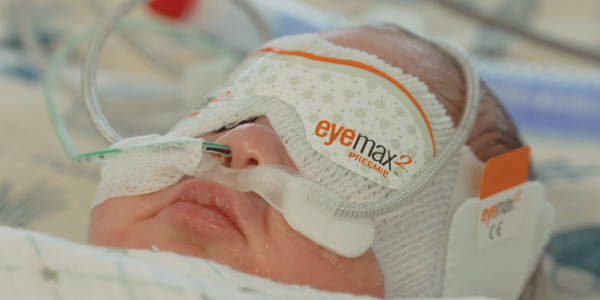Search
Showing results for "3"

A simple set of eye masks and ear plugs – an inexpensive solution explored in a successful pilot study by The Kids Research Institute Australia, together with the Child and Adolescent Health Service – could hold the key to better outcomes for our tiniest bubs. Now, a nationwide clinical trial is testing the idea
Research
Antibodies in breast milk: Pro-bodies designed for healthy newborn developmentThis manuscript sheds light on the impact of maternal breast milk antibodies on infant health. Milk antibodies prepare and protect the newborn against environmental exposure, guide and regulate the offspring's immune system, and promote transgenerational adaptation of the immune system to its environment.
Research
Combining CRISPR-Cas9 and TCR exchange to generate a safe and efficient cord blood-derived T cell product for pediatric relapsed AMLHematopoietic cell transplantation (HCT) is an effective treatment for pediatric patients with high-risk, refractory, or relapsed acute myeloid leukemia (AML). However, a large proportion of transplanted patients eventually die due to relapse. To improve overall survival, we propose a combined strategy based on cord blood (CB)-HCT with the application of AML-specific T cell receptor (TCR)-engineered T cell therapy derived from the same CB graft.
Research
Prognostic significance of molecular subgroups in survival outcome for children with medulloblastoma in MalaysiaAdvancements in genomic profiling led to the discovery of four major molecular subgroups in medulloblastoma (MB), which have now been incorporated into the World Health Organization classification of central nervous system tumors. The current study aimed to determine the prognostic significance of the MB molecular subgroups among children in Malaysia.
Research
The effect of the COVID-19 pandemic on paediatric anaesthesia research as evidenced by the contrasting recruitment experiences of centres in Australia and ScotlandAt two hospitals in Western Australia, we conducted a prospective, open-label, randomised, controlled trial of 240 patients undergoing tonsillectomy to investigate the effect of chewing a confectionery jelly snake on postoperative nausea and vomiting. The results were published in Anaesthesia Critical Care & Pain Medicine. Recruitment for this study was completed uneventfully between July 2018 and August 2019.
Research
Diet at birth is critical for healthy growth, independent of effects on the gut microbiotaColostrum is the first milk for a newborn. Its high content in microbiota shaping compounds and its intake at the time of gut microbiota seeding suggests colostrum may be critical in the establishment of a healthy microbiota. There is also accumulating evidence on the importance of the gut microbiota for healthy growth.
Research
Impact of Repeat Pertussis Vaccination on Infant and Maternal Antibody QualityRuth Peter Thornton Richmond PhD MBBS MRCP(UK) FRACP Co-head, Bacterial Respiratory Infectious Disease Group (BRIDG) Head, Vaccine Trials Group
Research
Minimal residual disease and outcome characteristics in infant KMT2A-germline acute lymphoblastic leukaemia treated on the Interfant-06 protocolThe outcome of infants with KMT2A-germline acute lymphoblastic leukaemia (ALL) is superior to that of infants with KMT2A-rearranged ALL but has been inferior to non-infant ALL patients. Here, we describe the outcome and prognostic factors for 167 infants with KMT2A-germline ALL enrolled in the Interfant-06 study.
Research
Clinical Characteristics and Outcomes of Central Nervous System Tumors Harboring NTRK Gene FusionsTropomyosin receptor kinase (TRK) fusions are detected in less than 2% of central nervous system tumors. There are limited data on the clinical course of affected patients.
Research
Returning raw genomic data to research participants in a pediatric cancer precision medicine trialIn pediatric cancer precision medicine clinical trials settings, parents proactively seeking treatment and answers to causation may request return of their child's raw data and/or biospecimen. To satisfy such requests, the ZERO Childhood Cancer Program required a guidance document.
